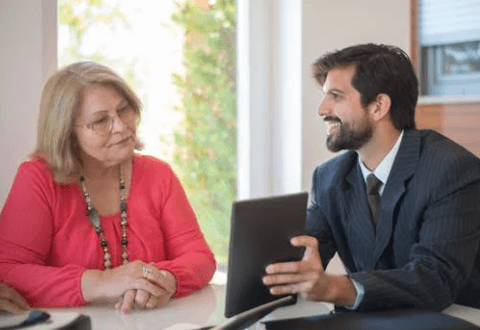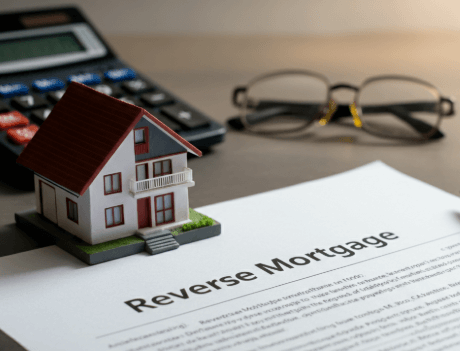Navigating the intricacies of a reverse mortgage can seem overwhelming, especially if you’re looking to transition out of such an arrangement. Whether due to changes in financial needs or personal circumstances, understanding “How to Get Out of a Reverse Mortgage” in Florida is crucial. In this guide, we’ll walk you through the essential steps and considerations to help you exit your reverse mortgage smoothly and effectively. From understanding the legal implications to exploring various repayment options, you’ll find all the information you need to make informed decisions about “How to Get Out of a Reverse Mortgage” in the Sunshine State.
Real estate investors like Steve Daria and Joleigh have extensive experience navigating the reverse mortgage landscape in Florida. Their knowledge can offer invaluable perspectives on practical repayment options and alternative solutions. By leveraging their knowledge, you can explore effective strategies to smoothly transition out of a reverse mortgage.
Understanding Reverse Mortgages
Before exploring how to get out of a reverse mortgage, it’s imperative to comprehend the nuances of this financial tool.
A Home Equity Conversion Mortgage (HECM) can permit homeowners aged 62 years or older to utilize a portion of their home’s equity to acquire cash.
This loan is paid out as a lump sum, monthly income, a line of credit, or a combination and does not require monthly mortgage payments.
Instead, the balance is typically returned when the homeowner decides to move out, sells the property, or passes away.

The Mechanics of a Reverse Mortgage
Securing a reverse mortgage requires the homeowner to maintain the house as their primary residence and continue paying property taxes and homeowners insurance.
The loan amount is determined by the home’s appraised value, the interest rate, the age of the youngest borrower, and a government-mandated lending limit.
The Benefits and Drawbacks
One of the most significant advantages of a reverse mortgage is that it can provide a tax-free income and allow homeowners to stay in their homes indefinitely.
However, there are also substantial drawbacks, such as high upfront costs, the risk of losing the property if loan obligations aren’t met, and a potential reduction in the inheritance for the borrower’s heirs.
Get An Offer Today, Sell In A Matter Of Days
Strategies on How to Get Out of a Reverse Mortgage in Florida
Understanding the complexities of exiting a reverse mortgage is a multi-faceted approach, and strategies can vary widely based on individual circumstances.
Selling the Home to Pay Off the Debt
Selling the home is the most straightforward way to repay the reverse mortgage.
If the home’s value has appreciated and the homeowner still needs to take the maximum available loan amount, the sale should generate enough money to cover the outstanding loan balance.
Example:
Jane, a homeowner in Florida, took out a reverse mortgage five years ago.
Her home value has increased significantly, so she decides to sell her home to pay off the reverse mortgage.
The profit from the sale exceeds the loan balance, allowing Jane to settle the debt and retain the remaining equity.
Paying the Debt with Personal Funds
If the homeowner or their heirs wish to retain the property, they can pay off the loan with their funds, which can come from savings, investment accounts, or a traditional mortgage.
Example:
John inherits his mother’s house, which has a reverse mortgage.
He decides to keep the home and uses his savings to pay off the reverse mortgage balance, allowing him to retain ownership of the property.
Refinancing the Reverse Mortgage
One option for those who wish to keep the home without selling it is to refinance the existing reverse mortgage.
This may be viable if the home value has appreciated and the homeowner’s equity in the property has increased.
Example:
Mary wants to keep her home but needs to get out of her reverse mortgage.
She refinances the reverse mortgage into a traditional mortgage due to increased home equity, allowing her to maintain ownership.
Using a Deed-in-Lieu of Foreclosure
In cases where the borrower passes away or can no longer live in the home, a deed-in-lieu of foreclosure can be used.
This is a transfer of the property title back to the lender.
While it may not be a preferred option, it can be a way to avoid the foreclosure process and its associated costs.
Example:
After Tom’s death, his heirs decide they cannot afford the property’s upkeep.
They opt for a deed-in-lieu of foreclosure, transferring the property title back to the lender to settle the reverse mortgage.
The Legal and Financial Implications of Reverse Mortgage Exit
Navigating the legal and financial implications of exiting a reverse mortgage requires a clear understanding and due diligence.
Key considerations apply to borrowers, heirs, and individuals potentially involved.
The Role of Financial and Legal Advisors
Consulting with financial advisors, real estate professionals, and legal counsel is critical at every step.
These experts can give practical insights into the implications of each exit strategy and protect the interests of the parties involved.
Anticipating Sale Proceeds and Costs
When planning to sell a home with a reverse mortgage, one must carefully consider the anticipated sale proceeds and deduct the loan balance, accrued interest, and associated fees to determine what will be left for the borrower or their heirs.
Understanding the Timeline for Repayment
Repaying a reverse mortgage is generally within a year of the borrower’s death or when the property is no longer the primary residence.
This fixed timeline necessitates preparedness and understanding the actions required within that period.
Documentation and Record-Keeping
Maintaining accurate documentation is critical for all parties involved.
This includes keeping records of the original mortgage agreement, loan statements, and all communication with the lender.

Frequently Asked Questions About How to Get Out of a Reverse Mortgage
In this section, we address the most common queries regarding the process of exiting a reverse mortgage in Florida.
What Happens to the Home Once the Mortgage is Paid Off?
Once the reverse mortgage debt is paid off through the sale of the property, refinance, or other means, the remaining equity belongs to the homeowner or their heirs as outlined by the terms of the reverse mortgage agreement.
Can You Get Out of a Reverse Mortgage If You Inherit the House?
Heirs can get out of a reverse mortgage by selling the home or paying off the loan with personal funds or another mortgage.
However, they must act quickly after the borrower’s death to keep the house.
Are There Tax Implications When Exiting a Reverse Mortgage?
Selling a home with a reverse mortgage or owning a home with a reverse mortgage can have tax implications, including potential capital gains taxes.
It’s critical to consult with a tax advisor to understand the specific impact on their situation.
Can You Be Forced Out of Your Home with a Reverse Mortgage?
While a reverse mortgage typically allows homeowners to stay in their homes for as long as the property is their primary residence, they can be forced out if they fail to meet their loan responsibilities, such as paying property taxes or homeowners insurance or allowing the home to deteriorate.
Conclusion
Navigating how to get out of a reverse mortgage in Florida requires careful consideration and strategic planning. By understanding your available options—whether through refinancing, selling your home, or leveraging other financial resources—you can confidently make a well-informed decision that is in line with your long-term goals.
Seek guidance from a mortgage specialist or a financial advisor whenever needed to ensure you make the best choice for your unique situation. With expert guidance and a comprehensive grasp of available options, you can successfully exit a reverse mortgage and secure your financial future.
**NOTICE: Please note that the content presented in this post is intended solely for informational and educational purposes. It should not be construed as legal or financial advice or relied upon as a replacement for consultation with a qualified attorney or CPA. For specific guidance on legal or financial matters, readers are encouraged to seek professional assistance from an attorney, CPA, or other appropriate professional regarding the subject matter.

